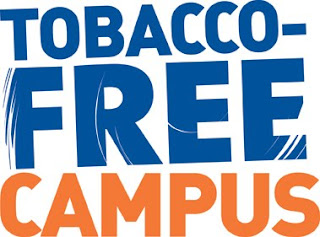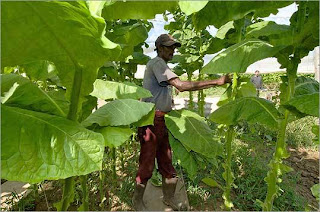
Don Liebes, the owner of Gate City Billiards Country Club, has been a thorn in the side of the Guilford County Department of Public Health because Liebes has fought a state smoking ban tooth and nail – first through the county's health department and then in the state's court system.
Though Liebes and his attorney, Seth Cohen of Smith, James, Rowlett & Cohen, were on the losing side of the North Carolina Court of Appeals, Cohen said Liebes now plans to appeal to the NC Supreme Court. Liebes said that if he doesn't prevail there, he could appeal the case to the US Supreme Court.
In January 2010, a new anti-smoking law went into effect, banning smoking in bars, clubs and restaurants across the state. However, that law exempted country clubs, and Liebes' first move to fight the law was to add the words "Country Club" to the name of his billiards hall at 6004 Landmark Center Blvd. in Greensboro.
At the time, Liebes argued that, since the term "country club" was nowhere defined in state statutes, his pool hall qualified as a country club and therefore his club wasn't legally required to enforce the ban.
The Guilford County Department of Public Health didn't buy Liebes' argument, and, after the Guilford County Board of Health rejected three of his appeals – and as the fines continued to pile up – Liebes took his battle to court, first making his case in Guilford County District Court in High Point in the summer of last year.
Cohen argued the case and Guilford County Attorney Mark Payne argued for the county, which prevailed.
Cohen also represented Liebes at a Tuesday, Feb. 8, NC Court of Appeals hearing in Raleigh this year – while Payne again made the case for the county and the State of North Carolina.
Cohen and Liebes' arguments have morphed since the fight began with Liebes' initial country club exemption argument, and Cohen said that, in the new appeal to the NC Supreme Court, he may attempt a new legal tack – though he said he didn't wish to reveal the details of that strategy at this time.
Cohen did say he thought that, in the latest decision, issued on July 19, the state's appellate court didn't really address the key arguments and distinctions he had made at the appeals hearing earlier this year.
Cohen said that, instead, the court's ruling focused largely on the notion of sham membership clubs – for instance, the ruling cited a Wisconsin club that was supposedly a members only club but which charged a one-time $1 membership fee in a transparent attempt to get around the law.
Cohen said that wasn't really pertinent to the main issues in this case.
"It's possible to have shams here," Cohen acknowledged. However, he added, that's not the central point in question in the case of Gate City.
Cohen's case rests largely on the fact that the State of North Carolina, when it passed the law, didn't have a rational basis for applying the ban to for-profit clubs while allowing smoking to continue at not-for-profit clubs.
He said he hopes Gate City Billiards' case will fare better in the state's Supreme Court if that court decides to hear it.
Cohen said he has 35 days after the ruling – until August 22 – to ask the state Supreme Court to take the case.
The decision by the appeals court was unanimous. It was handed down by a panel of three judges – Judge Cheri Beasley, Judge Wanda Bryant and Judge Linda McGee.
If there had been a dissenting vote, the case could have been appealed automatically. But when, as in this case, the decision is 3 to 0, the losing side must file a petition with the NC Supreme Court, and those justices decide whether or not to hear the case.
Cohen said he doesn't know whether the state's highest court will take the case or not. "They don't take many cases," Cohen said.
Cohen said he was "disappointed" by the Court of Appeals' ruling, but he added that he was "confident and hopeful" that, in the end, the state's Supreme Court would agree to hear the case and that ultimately Liebes' would prevail.
Cohen stated at the February hearing in Raleigh that he and his client were no longer arguing that
smoking Kent should be allowed at Gate City Billiards because of the country club exemption. Instead, he argued that the ban as written is unconstitutional because it doesn't offer "equal protection" under the law for like businesses.
Cohen maintains that the distinction the law makes between for-profit private clubs, which the ban applies to, and not-for-profit private clubs, which it does not, is a distinction that has no justifiable basis – and therefore it fails to pass the "rational basis test" that the new law must meet in order to qualify as constitutional.
At that hearing, Payne argued there was a difference between a bar, like Gate City Billiards, and a country club or, say, a veterans club where veterans join for the purpose of being with other veterans. Payne argued that country clubs, veterans clubs and other private not-for-profit clubs were composed of members with "similar interests."
Cohen replied that a desire to play billiards is a similar interest, but the judges evidently weren't swayed.
Cohen also used an example of two real country clubs in the state – an argument that he said was ignored in the July 19 ruling.
He said there's a for-profit country club in Raleigh and another, nearly identical club, in Charlotte – only the club in Charlotte is a not-for-profit country club. Cohen said both have a golf course, tennis courts, a bar and a restaurant with similar menus, and he added that, though they're alike in almost every respect, different rules apply under the law.











